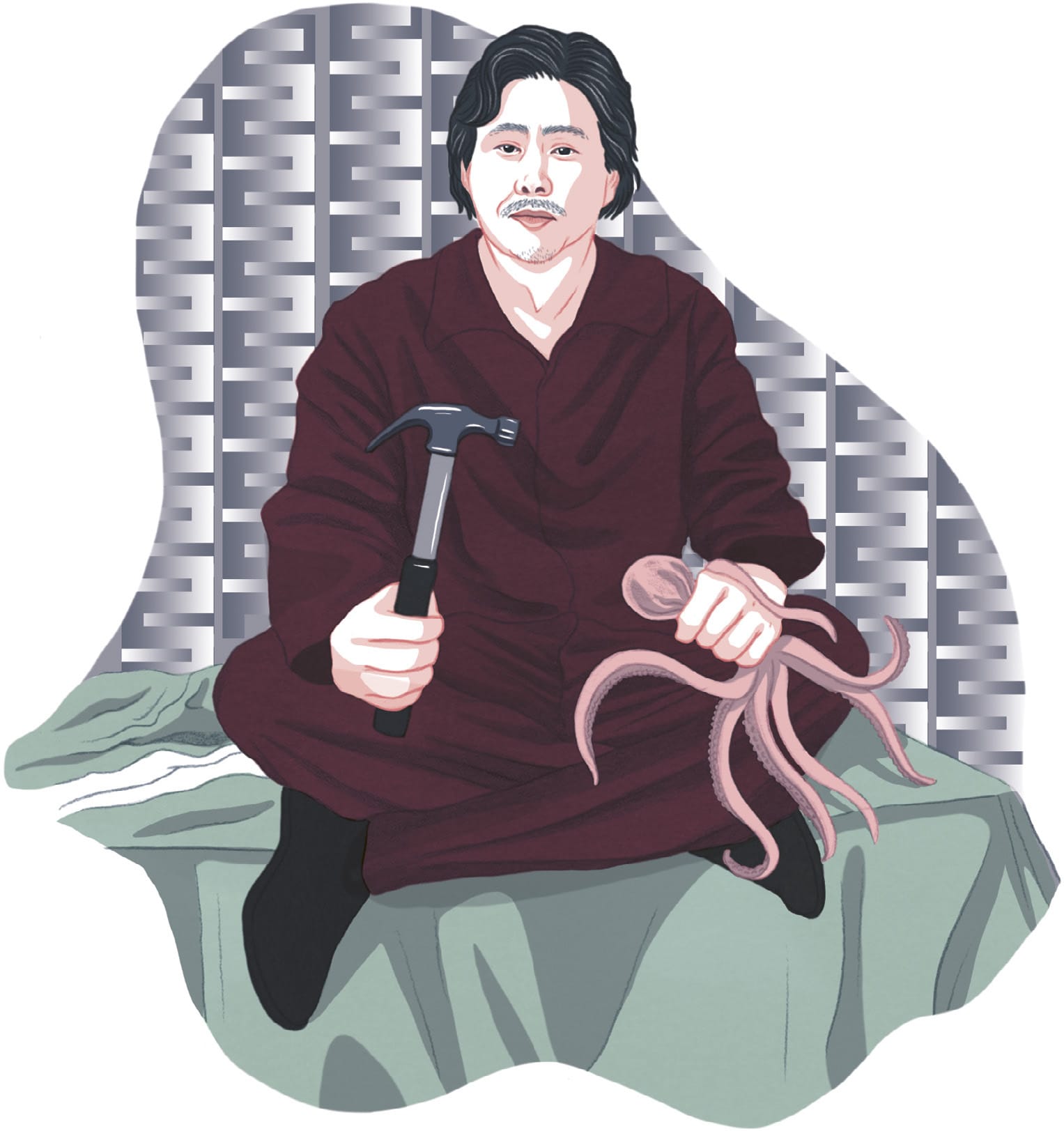PARK CHAN-WOOK (1963)
 VOICE OF VENGEANCE
VOICE OF VENGEANCE
Revenge might be a dish best served cold, but in writer-director Park Chan-wook’s celebrated Vengeance trilogy, it is presented at sub-zero temperatures.
Born in Seoul, South Korea, Park created a lauded and popular body of work that refashions the mechanics of genre cinema. His subject matter may often be pitch black and his unwillingness to shy away from gruesome acts of violence bold, but his style is never less than sophisticated. The sheen of his work is matched by the complexity of its narratives, whose themes encompass guilt, desire, loyalty and trust.
Park’s star rose with what became known as New Korean Cinema, comprising a group of filmmakers who profited from film investment before the Asian financial collapse of 1997. By the end of the 1990s, they were delivering glossy, Hollywood-style films with an Asia-centric spin. Park’s feature debut, Saminjo (1997), was popular domestically, but it was Joint Security Area (2000) that raised his profile internationally. A slick thriller set at the border between North and South Korea, it not only provided thrills, but also underpinned Park’s innate ability to offer up mainstream genre entertainment while probing complex, often morally ambiguous terrain.
If violence and sex are a mainstay in much of Park’s work, it is never solely for audiences’ gratification. He applies an equal moral weight to both, and implies that actions – consensual or forced – always come at a cost. Nowhere is this more apparent than in the Vengeance trilogy: Sympathy for Mr Vengeance (2002), Oldboy (2003) and Lady Vengeance (2005). In each, characters come to understand innately the universal aspect of Newton’s third law that every action has an equal and opposite reaction. Like his subsequent films, Park’s Vengeance trilogy eschews the moral vacuity of many a Hollywood action film or thriller, whereby the hero is exempt from judgment as a result of their deeds. The violence is bloody and shocking, acknowledging the vicarious pleasures of screen violence: a scene in Oldboy that features the anti-hero armed with nothing but a hammer and facing an onslaught of adversaries is undeniably thrilling. However, it never shies away from the damage such a sequence inflicts on a body.
Subsequent films Thirst (2009), a starkly original take on the vampire myth, and the erotic period thriller The Handmaiden (2016) have cemented Park’s position as one of the most compelling contemporary directors. But his Vengeance trilogy ensured his status as a cult filmmaker and unique voice in cinema.
